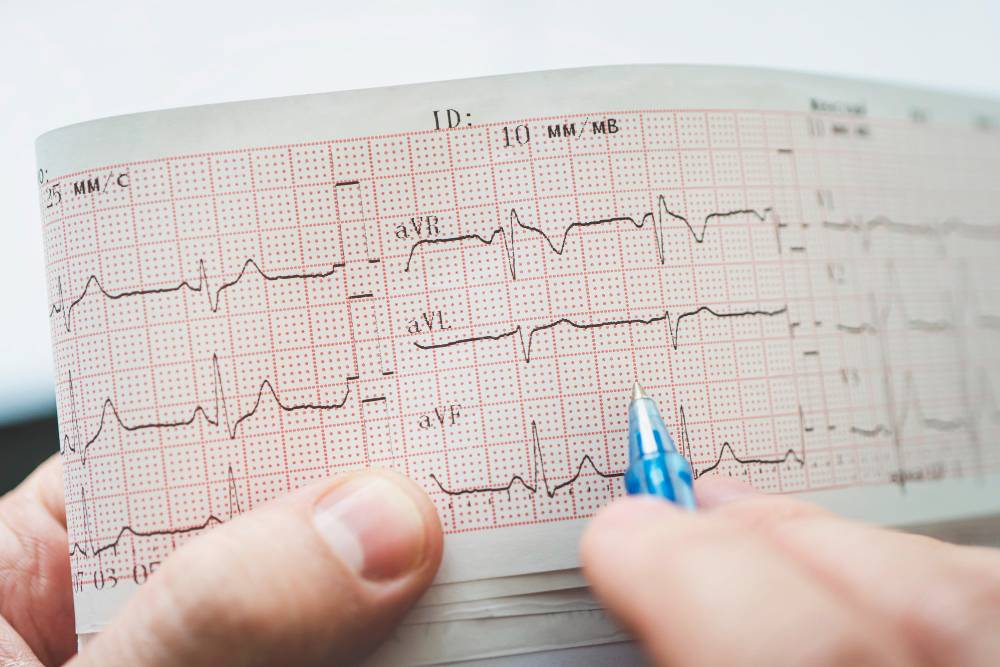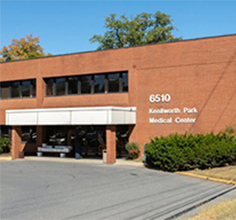
Heart disease can develop quietly for many years without noticeable symptoms. Routine health screenings have now become the norm because tests like EKGs give your primary care doctors and heart doctor a snapshot of how your heart is working right now. This can help reveal hidden problems long before the consequences of neglect become too severe. Southern Maryland Medical Group offers reliable health screenings, including EKGs, so that local patients can protect their health. If you’ve ever wondered whether an EKG would be helpful for early diagnosis, then keep reading to find out how this painless test can offer you vital information about the condition of your cardiovascular system.
Most people will recognize the squiggly lines on a hospital monitor, but they don’t always know what the EKG measures. An electrocardiogram records the electrical activities of the heart. Each time your heart beats, it actually produces a small electrical impulse to help the muscle contract and pump your blood. An EKG captures these signals and creates a pattern that a heart doctor is trained to read. The pattern can show your heart rate, rhythm, strength, and timing of electrical signals as they move through each part of your heart. If there’s an irregularity, the EKG will pick it up, including signs of arrhythmia or a previous heart attack. The beauty of an EKG is that it’s entirely non-invasive and only takes 10 minutes. You get instant feedback without the need for dyes, needles, or radiation. However, it can detect very serious issues that wouldn’t necessarily show up during a physical exam or through standard blood work.
A lot of people skip EKG screenings because they feel fine. But heart problems aren’t always very obvious. Silent conditions like atrial fibrillation or left ventricular hypertrophy can exist without any symptoms until a heart attack or stroke occurs. If you fall into certain categories, then routine EKGs are worth discussing with primary care doctors in Riverdale, MD. People who have a family history of high blood pressure, diabetes, heart disease, or high cholesterol are good candidates. Smokers and anyone over the age of 50 should consider it, even if they feel totally healthy. If you experience dizziness, shortness of breath, fatigue, or chest pain, then it’s a good idea to schedule a screening. While these could be signs of natural aging, being out of shape, or anxiety, they can sometimes point to a hidden heart condition. The EKG is the first step in figuring that out.
EKGs are sometimes dismissed because of misunderstandings in the media. One myth is that only people with obvious heart symptoms need an EKG. That isn’t true. Routine EKGs can pick up problems so you can avoid emergencies. Some believe that EKGs will detect every possible heart issue. An EKG is a powerful tool, but it won’t replace every heart test. Instead, it is a screening that works well alongside your other health screenings so that your doctor can see the bigger picture. Some people also worry that an abnormal EKG automatically means they have heart disease, but that isn’t always the case. Changes on an EKG can be harmless or caused by electrolyte imbalances or medications. It’s important to have a heart doctor or primary care provider who can accurately interpret your results.
How often should you get an EKG? That answer will be slightly different for everyone. However, most doctors recommend an EKG every few years. If you have risk factors or you’re over 50, then it’s a good idea to get checked more often, perhaps once a year. And, if you have heart-related symptoms, no matter how mild or occasional, you should schedule a screening. An EKG is a baseline test that will give your doctor something to compare future tests against. It’s also a great way to notice any changes over time.
Your heart works hard every day, and routine screenings like EKGs provide an opportunity to catch any problems before you ever feel a symptom. Southern Maryland Medical Group is here to offer comprehensive care, including EKG screenings, so you can live a longer, healthier life. Call our office if you have questions or if you want to schedule an appointment.
Southern Maryland Medical Group has 3 convenient locations to provide professional medical care services in the Southern Maryland area. Call or schedule an appointment with one of our locations to get medical care help.

5801 Allentown Road, Suite 400 Camp Spring, MD 20746
Phone: 301-868- 0150
Billing Inquiries: 301-552-1270
Fax: 301-868-0243

7500 Greenway Center, Dr #1200 Greenbelt, MD 20770
Phone: 301-486-7580
Billing Inquiries: 301-552-1270
Fax: 301-486-7581

6510 Kenilworth Ave, Ste 1400, Riverdale MD 20737
Phone: 301-618-0771
Billing Inquiries: 301-552-1270
Fax: 301-618-0772